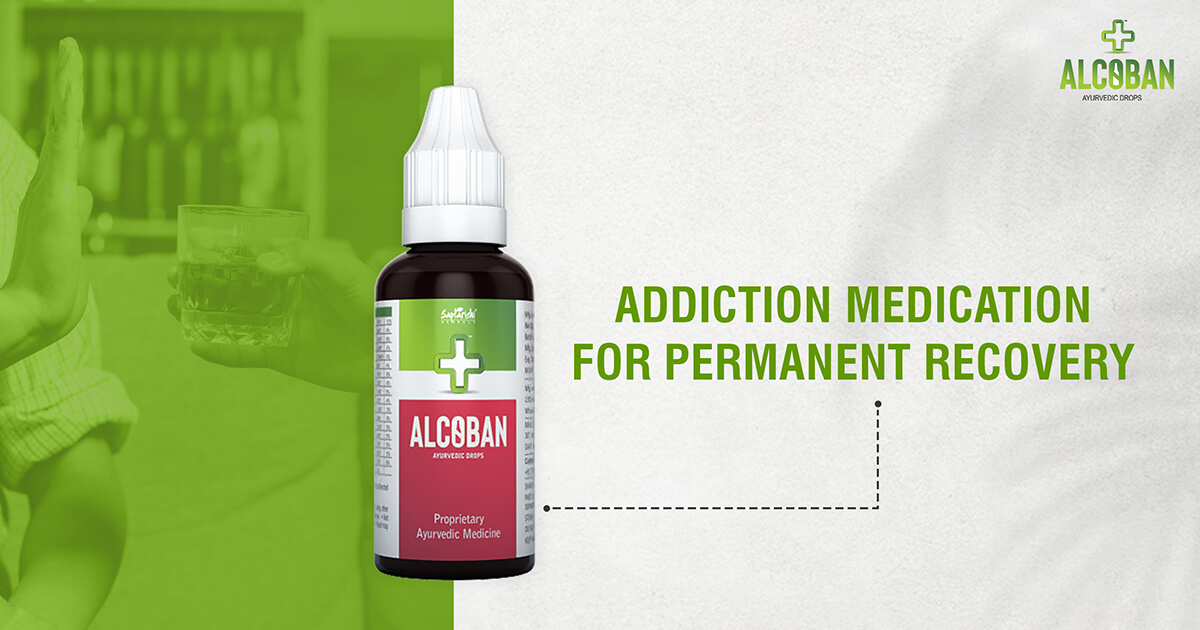Alcobanplus

Don't regret your decision later when you lose your muscular body to alcohol.
So, does drinking alcohol cause loss of muscle mass?
That's true, regular drinking of alcohol in excessive amounts can gradually lead to loss of muscle. It will not make a severe impact if you have an occasional drink, but alcohol addiction can adversely affect muscle recovery, growth, and muscular health. Various physical and functional process in the body gets disturbed due to alcohol which may cause muscle loss.
Protein synthesis is the primary process responsible for muscle recovery and growth. This process helps the body restore and build muscle fibers, especially post-workouts, resulting in increased muscle mass and vigor. Research has shown that the intake of alcohol has a significant impact on the rate of protein synthesis.
Drinking alcohol interrupts the process of muscle protein synthesis without which muscles do not rebuild properly, gradually resulting in the breaking of muscle tissues than it makes.
Alcohol causes hormonal imbalance leading to disruption of the body's homeostasis, leading to several disorders including cardiovascular disease, reproductive, and psychological disorders.
Testosterone is known to build and strengthen muscle, while estrogen plays the same role in women to do so. These crucial hormones that help in muscle building get blocked due to alcohol consumption.
Alcohol impacts the stress hormone cortisol, and high cortisol levels can cause muscle atrophy, sleep disturbance, decreased testosterone, and weight gain.
Diuretic properties of alcohol can cause dehydration. Water is essential for proper functioning, repair, and growth of muscles. Dehydration may suppress these functions making it difficult for the muscle cells to repair themselves and grow.
Furthermore, alcohol hinders the absorption of nutrients in the body that is essential for muscle growth. Absorption of zinc, magnesium, and vitamins that are key ingredients that help muscle healing gets negatively impacted by alcohol. Gradually, this may lead to nutrient deficiency and badly affects muscle health.
Alcohol has high calories with nil nutritional value. These excess calories get stored as fat if not burned off with high-intensity workouts. Similarly, drinking alcohol can surge hunger, resulting in overeating and weight gain. Excessive consumption of alcohol means excessive fat storage and less muscle mass.
Regular exercise is necessary to build and maintain muscle, but drinking adversely affects physical functioning. Alcohol damages motor, coordination, and balance. Inflammation and oxidative stress are increased which reduces workout intensity and heightens the risk of injury. Less physical activities cause gradual loss of muscle mass.
Muscle recovers maximum during deep sleep. Alcohol disturbs sleep routine hindering muscle recovery especially if consumed during bedtime.
Though most of the adverse effects mentioned above are linked to heavy and regular drinking of alcohol, moderate drinking may not have any sudden impact on muscle mass but will affect the process of protein synthesis.
Breaking free of alcohol addiction - It's not easy to quit drinking alcohol but conventional treatments or support from alternative medicines such as Ayurveda, that focus on natural remedies, make it possible. Ayurvedic remedy for addiction (नशा मुक्ति दवा) balances pitta dosha, which is responsible for anger, petulance, and cravings for alcohol. These ayurvedic medicines to quit alcohol promote emotional stability, reduce withdrawal symptoms, detoxify the liver, strengthen the immune system, and make the recovery process easier.
Diet adjustment - For those fighting addiction, a nutritious diet that supports detoxification and balances pitta dosha is recommended. To support the growth of muscle mass, increase intake of protein-rich foods, and add healthy fats and antioxidant-rich foods. Hydration and electrolytes are essential.
Adequate sleep and rest - A good night's sleep is essential for relieving stress, the main cause of addiction. Sleep is also essential for muscle recovery and growth.
The association between alcohol and muscle mass is clear from the above discussion. Alcoholism can substantially inhibit muscle growth, repair, and overall functioning of the body. From impairing protein synthesis to nutritional deficiencies, alcohol causes various health issues including loss of muscle mass.
For fitness freaks, it is advisable to either quit drinking or minimize alcohol consumption to save yourself from the disadvantages of alcohol. A well-balanced diet, proper hydration, and adequate rest are essential to tone down the negative effects of alcohol on your body. So be mindful of what you consume, prioritize health, and prioritize the joy of an alcohol-free life.
